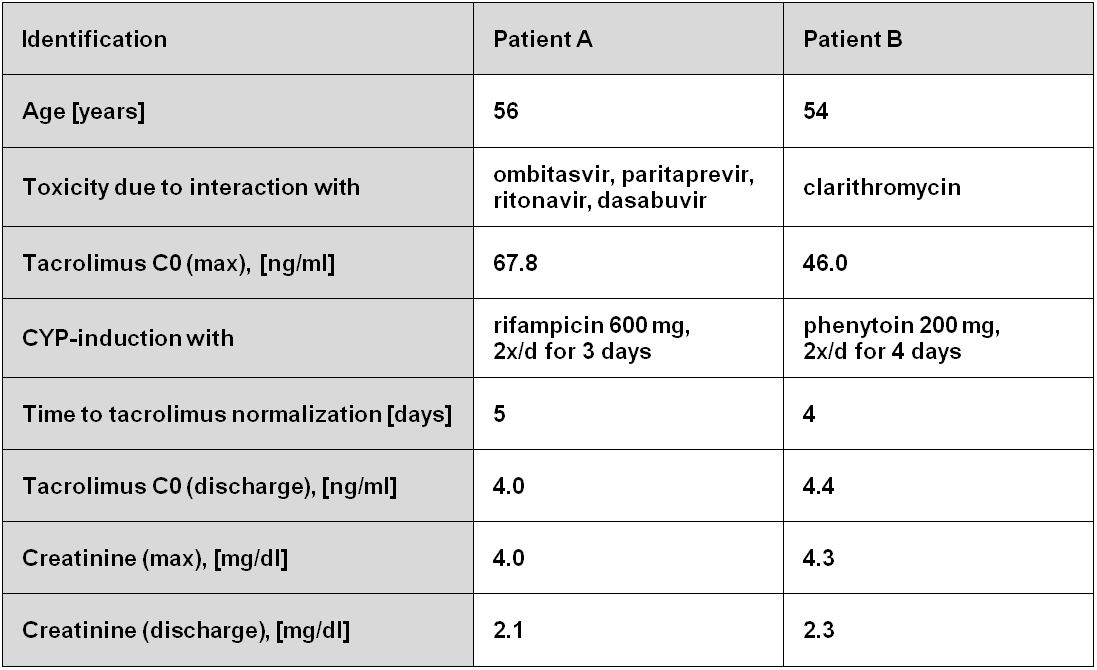Drug-induced CYP-Induction as Therapy for Tacrolimus Intoxication
John Hoppe1, Alexander Holderied1, Hannah Schäfer1, Christian Lottspeich1, Volker Vielhauer1, Hans-Joachim Anders1, Antje Habicht2, Ulf Schönermarck1, Michael Fischereder1.
1Department of Internal Medicine IV, Renal Division, University Hospital LMU, Munich, Germany; 2Transplant Center, University Hospital LMU, Munich, Germany
Management of calcineurin inhibitor (CNI) therapy in kidney transplant recipients may be complicated due to polypharmacy. As CNI undergo extensive metabolism by cytochrome-P450 enzymes (CYP) drug-induced CYP-inhibition poses risk for elevated CNI blood concentrations. Here, we report on two kidney transplant recipients treated with tacrolimus who presented with signs of tacrolimus intoxication at admission.
Patient A was started on antiviral medication ombitasvir, paritaprevir, ritonavir and dasabuvir for hepatitis-C virus treatment 3 days prior to hospitalization. And patient B was treated with clarithromycin for pneumonia. Both therapies cause drug-induced CYP-inhibition and both patients displayed highly elevated tacrolimus serum concentrations and acute kidney injury. After application of CYP-inducing agents rifampicin and phenytoin respectively, tacrolimus levels were rapidly reduced and renal function recovered (Table).
Treating severe CNI-intoxication is an infrequent yet emergent condition. These results add to the knowledge of therapeutic drug-induced CYP-induction.
